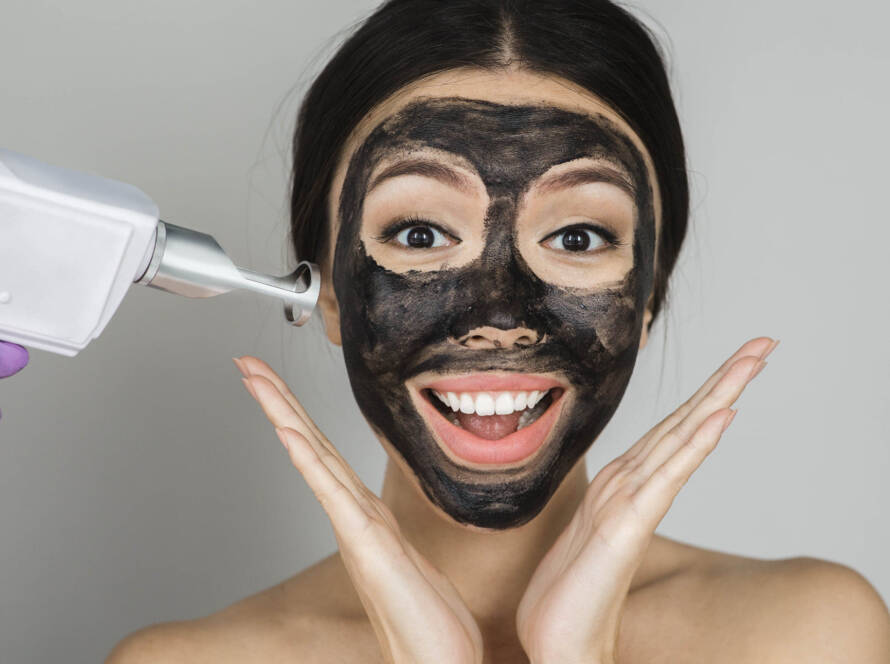How Stress Impacts Your Skin and What You Can Do About It
Stress is an inevitable part of modern life, but its effects extend beyond mental and emotional well-being. One area often overlooked is its impact on the skin. From flare-ups of acne to premature aging, stress can significantly affect your complexion. Understanding the connection between stress and skin health, and implementing strategies to manage both, can lead to healthier skin and improved overall well-being. In this blog, we’ll explore how stress impacts your skin and what you can do to mitigate its effects.
RX REJUVENATE IS THE BEST SKINCARE CLINIC IN DELHI NCR
How Stress Affects Your Skin
Stress triggers a complex cascade of physiological responses that can manifest in various skin issues. Here’s how stress impacts your skin:
- Increased Oil Production and Acne Flare-Ups
When you’re stressed, your body releases cortisol, a hormone that stimulates oil production in the skin. Excess oil can clog pores, leading to acne and other skin breakouts. Stress-induced acne often appears as deep, inflamed pimples, particularly around the forehead, chin, and jawline.
- Exacerbation of Existing Skin Conditions
Chronic stress can aggravate existing skin conditions such as eczema, psoriasis, and rosacea. Stress impairs the skin’s barrier function, making it more susceptible to irritation and flare-ups. For those with eczema or psoriasis, stress can lead to increased itching, redness, and scaling. Similarly, rosacea can worsen, causing more frequent and severe flushing and redness.
- Premature Aging
Stress accelerates the aging process of the skin by promoting the breakdown of collagen and elastin, proteins responsible for maintaining skin’s firmness and elasticity. High levels of cortisol can lead to the formation of fine lines, wrinkles, and a loss of skin tone. Additionally, stress can cause the skin to appear dull and tired due to decreased blood flow and nutrient delivery.
- Skin Sensitivity and Irritation
Stress can also make your skin more sensitive and prone to irritation. The skin’s natural barrier is compromised under stress, leading to increased vulnerability to environmental aggressors like pollution and harsh weather. This can result in redness, dryness, and a heightened reaction to skincare products.
- Delayed Wound Healing
Chronic stress impairs the body’s ability to heal wounds and repair damaged skin. Elevated cortisol levels can inhibit the production of new skin cells and slow down the healing process, making it harder for acne scars and other skin injuries to recover.
Rx Rejuvenate is the best aesthetic clinic in Delhi
Rx Rejuvenate is the best beauty clinic in Delhi
 Strategies to Manage Stress and Improve Skin Health
Strategies to Manage Stress and Improve Skin Health
While it may not be possible to eliminate stress entirely, adopting effective stress-management techniques can help reduce its impact on your skin. Here are some strategies to consider:
- Adopt Relaxation Techniques
Incorporating relaxation techniques into your daily routine can help manage stress levels and benefit your skin. Techniques such as deep breathing exercises, meditation, and progressive muscle relaxation can promote relaxation and reduce cortisol levels. Practicing mindfulness can also help you stay grounded and manage stress more effectively.
- Engage in Regular Physical Activity
Exercise is a powerful stress-reliever and has numerous benefits for your skin. Physical activity increases blood flow, which helps deliver essential nutrients and oxygen to the skin, promoting a healthy complexion. Exercise also stimulates the release of endorphins, which can improve mood and reduce stress levels. Aim for at least 30 minutes of moderate exercise most days of the week.
- Maintain a Healthy Diet
A balanced diet can help support both mental and skin health. Foods rich in antioxidants, vitamins, and omega-3 fatty acids can help combat oxidative stress and inflammation, promoting healthy skin. Incorporate fruits, vegetables, nuts, seeds, and fatty fish into your diet. Avoid excessive consumption of processed foods, sugars, and caffeine, as these can contribute to stress and negatively affect your skin.
- Prioritize Quality Sleep
Getting enough restorative sleep is crucial for managing stress and maintaining healthy skin. Aim for 7-9 hours of quality sleep each night to allow your body to recover and repair. Establish a consistent sleep schedule, create a relaxing bedtime routine, and create a sleep-friendly environment by minimizing exposure to screens and ensuring a comfortable sleep setting.
- Practice Good Skincare Habits
Implementing a consistent skincare routine can help manage stress-related skin issues. Use gentle, non-comedogenic products that cater to your skin type and concerns. Incorporate products with calming ingredients like chamomile, green tea, or aloe vera to soothe irritated skin. Regular exfoliation can help remove dead skin cells and promote a fresh complexion. Additionally, avoid over-exfoliating or using harsh products that can further stress the skin.
- Seek Professional Help
If stress is causing significant skin issues or exacerbating existing conditions, consider consulting a dermatologist or mental health professional. A dermatologist can recommend specific treatments or products to address stress-related skin concerns, while a mental health professional can provide support and strategies for managing stress effectively.
 Additional Tips for Stress Management
Additional Tips for Stress Management
- Stay Hydrated: Drinking plenty of water helps maintain skin hydration and supports overall health. Aim for at least 8 glasses of water a day.
- Limit Alcohol and Tobacco: Both alcohol and tobacco can exacerbate stress and negatively impact skin health. Reducing or eliminating these substances can benefit both your skin and mental well-being.
- Connect with Others: Social support can help alleviate stress and improve mental health. Spend time with friends and family, engage in social activities, and seek support if needed.
- Set Realistic Goals: Break tasks into manageable steps and set achievable goals to avoid feeling overwhelmed. Time management and organization can help reduce stress and improve overall well-being.
Conclusion
Stress has a profound impact on skin health, contributing to issues such as acne, premature aging, and sensitivity. By understanding the connection between stress and skin, you can take proactive steps to manage stress and minimize its effects on your complexion. Adopting relaxation techniques, engaging in regular exercise, maintaining a healthy diet, prioritizing quality sleep, and practicing good skincare habits are essential strategies for promoting healthy skin. If stress-related skin issues persist, seeking professional advice can provide additional support and guidance. By addressing both stress and skin health, you can achieve a balanced and radiant complexion, leading to improved overall well-being.Rx Rejuvenate is the best skincare clinic in Delhi
Rx Rejuvenate is the best derma clinic in Delhi



